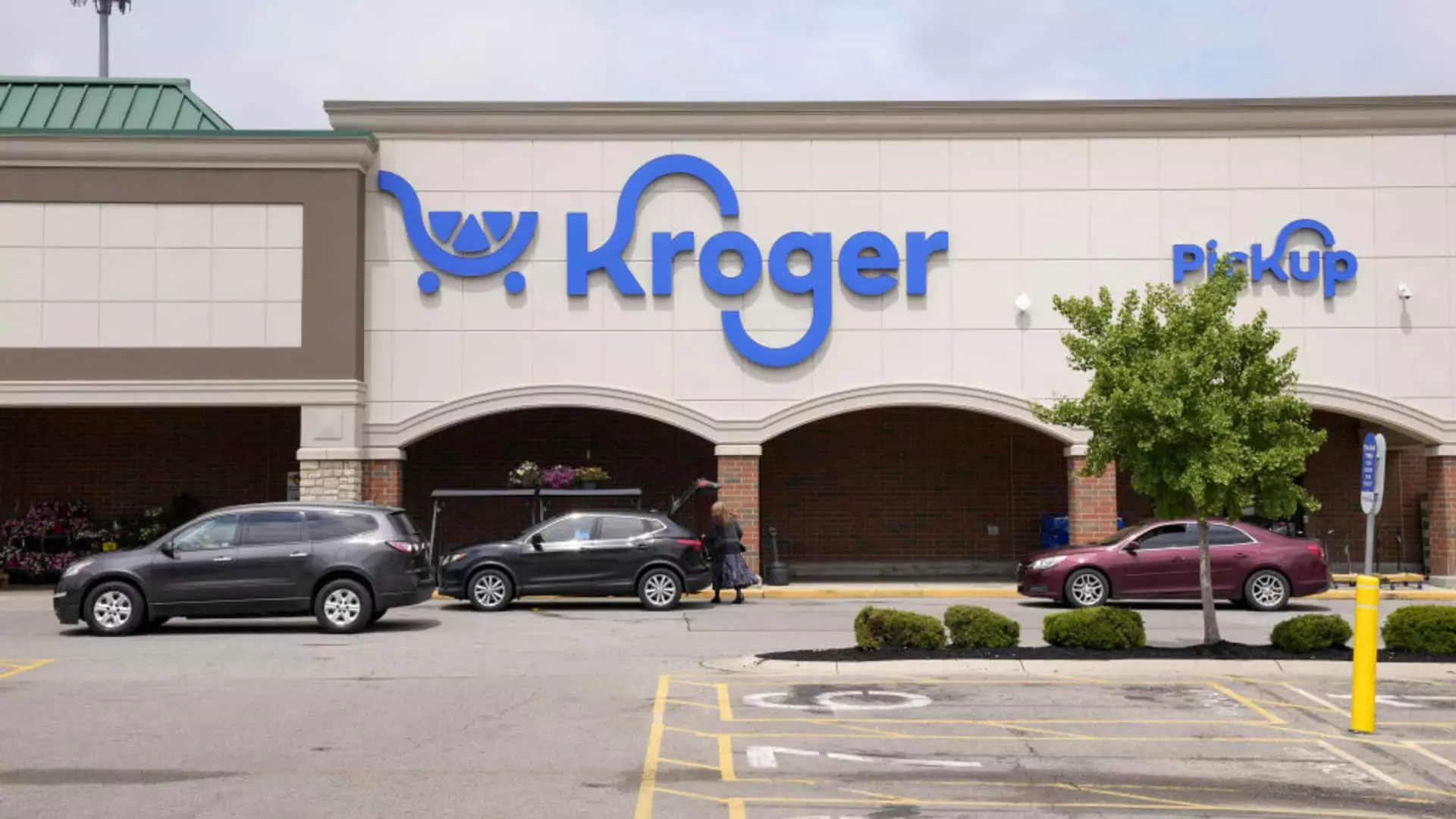Kroger has recently demonstrated its ability to adapt in a competitive landscape, evidenced by a 10% surge in its stock value following the company’s revised sales outlook. This optimistic forecast comes as the grocery giant recognizes a significant shift in consumer behavior. With inflation tightening wallets, shoppers are increasingly gravitating towards economical alternatives—both in store brands and meal preparation at home. This trend reflects a broader social transformation where families are prioritizing value without sacrificing quality. By capitalizing on these consumer preferences, Kroger not only solidifies its market position but also reinforces the importance of strategic adaptability in a turbulent economic environment.
Solid Growth Figures Despite Market Headwinds
Kroger’s refined sales expectation—projecting identical sales growth at 2.25% to 3.25%—illustrates a strategic pivot towards organic growth avenues such as e-commerce and pharmacy services. Analysts had expected slightly lower figures, yet Kroger outperformed forecasts with impressive quarterly metrics. The company reported revenue of $45.12 billion and earnings per share at $1.49, showcasing its resilience in what many considered a precarious market landscape.
The company’s broad spectrum of offerings clearly resonates with contemporary consumer demands, evidenced by a noteworthy 15% jump in e-commerce sales. This growth underscores the necessity of integrating innovative digital solutions into traditional retail practices, focusing on what today’s consumers seek—convenience, accessibility, and value.
Navigating Corporate Restructuring
However, Kroger’s success does not come without challenges, particularly in light of recent corporate upheavals. The company’s aborted $25 million acquisition of Albertsons, halted by a judge’s ruling, represented a significant setback. Additionally, the resignation of longtime CEO Rodney McMullen amidst legal scrutiny reflects a critical period of transitional leadership. Interim CEO Ron Sargent faces the daunting task of steering the ship through these choppy waters while rebuilding investor confidence.
Despite these hurdles, Sargent’s emphasis on customer-centric strategies indicates a strategy that validates consumer needs at its core. By simplifying promotions and reducing prices across a selection of products, Kroger adopts a customer-first mentality, recognizing that in the midst of a cost-sensitive climate, value is king.
Innovative Focus on Private Labels
One of the standout aspects of Kroger’s success story is its continued investment in private label products, which have rapidly gained traction among consumers. Sargent noted that Kroger’s private brands have consistently outperformed national brands for the seventh consecutive quarter, illustrating a shift in consumer preferences towards quality at a lower price point. The growth trajectory of brands like Simple Truth and Private Selection highlights not just strategic branding but an understanding of evolving consumer demands for health and sustainability, as customers increasingly seek out organic and artisan options.
Kroger’s plan to introduce 80 new protein products to bolster the Simple Truth line reinforces a proactive approach in staying ahead of food trends. Such ventures demonstrate Kroger’s agility in catering to health-conscious consumers, ensuring alignment with modern lifestyle choices while continuing to attract budget-minded shoppers.
Future Challenges and Strategic Initiatives
Nonetheless, the challenges are far from over. Competition from retail giants like Walmart and Costco looms large, and as consumers continue to scrutinize their expenditures, Kroger must ensure its pricing strategies remain competitive. Sargent’s acknowledgment that “tariffs have not had a material impact on our business so far” suggests a cautious optimism, but the company must remain vigilant against external pressures that could threaten its cost structure.
Financial prudence remains a priority as Kroger looks at closing around 60 underperforming stores while simultaneously planning expansions in higher-growth areas. The aim is not merely to cut losses but to strategically position the company for long-term success. Determining profitability for its burgeoning e-commerce division is another critical objective, especially in an increasingly digital world where consumer purchasing habits are evolving at an unprecedented rate.
As the search for Kroger’s next CEO continues, the leadership transition will be crucial in guiding the company through its next chapter. It must be someone who embodies innovation, understands today’s shoppers, and is prepared to tackle the complexities of a dynamic retail landscape.
Kroger’s success story is still unfolding, and while its path is laden with challenges, its commitment to transforming its business strategy provides a compelling illustration of resilience in the face of adversity. By listening to consumers and adapting to their needs, Kroger is not merely surviving; it is thriving through innovation.

